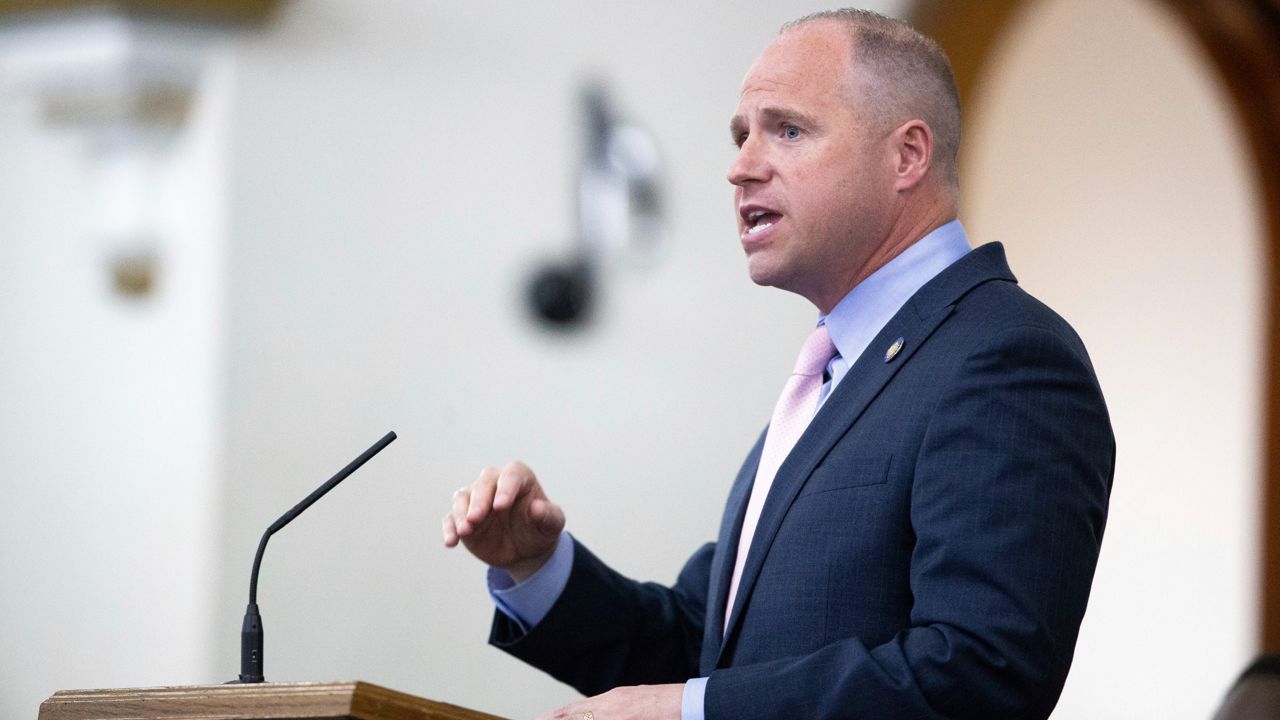A bill was introduced earlier this year to create a registry to track Frontotemporal Degeneration, or FTD, in New York.
FTD is a group of disorders that occur when nerve cells in the frontal and temporal lobes of the brain are lost.
Family members, lawmakers and experts stressed in a news conference Wednesday that the disease can manifest itself in a number of different ways, from difficulty speaking to behavioral changes.
They say FTD is often misdiagnosed as other conditions like Alzheimer’s or Parkinson’s disease, creating more obstacles for individuals and their families and muddying efforts to find a cure. Advocates for the bill hope better understanding the disease can help fix that.
Emma Heming Willis, whose husband, actor Bruce Willis announced he was diagnosed with the disease last year, joined lawmakers and advocates at the state Capitol to rally support for the bill.
“Since our announcement last February, our family has received massive outpourings of love,” she said.
In the nearly 15 months since her husband’s diagnosis was announced, Heming Willis has found herself as a spokesperson for a condition that impacts many, but few understand.
“Due to the lack of awareness about the illness, two of the biggest hardships of FTD are misdiagnoses and the length of time it takes patients to be diagnosed,” she said.
While Heming Willis has worked tirelessly to raise awareness since her husband’s diagnosis, it’s the personal story of state Senator Michelle Hinchey and her concern for other families that is the driving force behind the bill.
Hinchey's father, former Rep. Maurice Hinchey, lost his life to the disease in 2017.
“His intellect was the defining feature of who he was, and when he was diagnosed, we discovered it because he started to loose language,” she said.
Hinchey told reporters the bill will not only establish the registry and a committee to create it, but also require hospitals to report diagnoses to the state.
“So we can start to track and see how many diagnoses are coming, how long it took to get there and the diagnoses that were put in place beforehand,” she said.
Susan Dickinson, CEO of The Association for Frontotemporal Degeneration, outlined tangible benefits that could come from the information gathered.
“Data collected from a New York registry would allow biopharma companies, universities, and hospitals to more strategically allocate resources for FTD research, care and desperately needed treatment,” she said.









